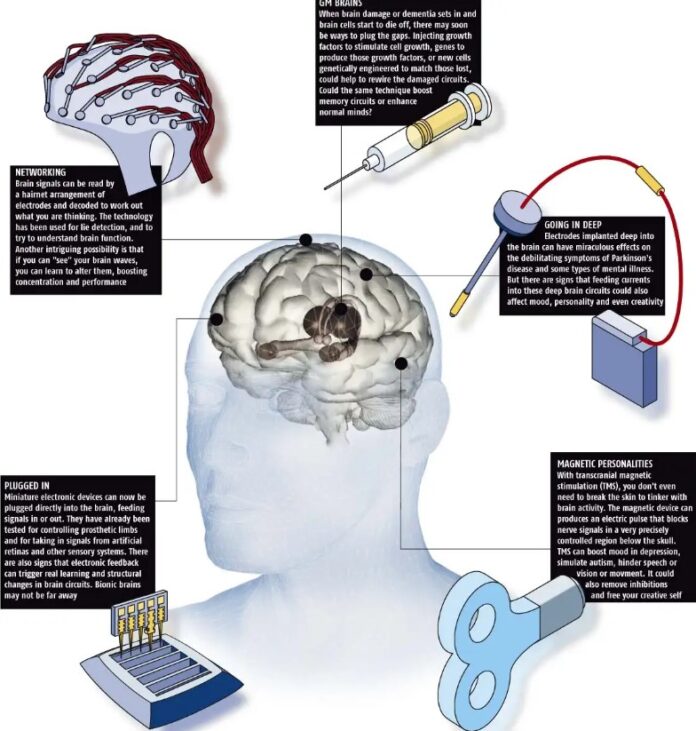The brain is the control center of our bodies. It’s the main hub where all vital functions are regulated. Like any machinery, it’s subject to wear and tear, especially if not properly maintained. Brain degeneration can lead to numerous health problems, and while Parkinson’s disease might be one of the extreme cases, taking care of our brain’s health has benefits far beyond preventing such conditions. I’ve recently read about the parkinson’s protocol reviews, and it got me thinking about the broader spectrum of preserving brain health. So, let’s dive into some lifestyle changes that can benefit your gray matter.
1. Diet Matters
Believe it or not, the food you consume plays a vital role in your brain health. Some nutrients promote the growth of new brain cells and connections, like Omega-3 fatty acids found in fish. Antioxidants, present in berries and nuts, combat oxidative stress which might lead to brain aging. If you’re aiming to balance your nutrition for brain health, 7 foods to help balance glucose levels could be a good starting point.
2. Mental Exercises
Just as physical workouts build your muscles, mental exercises keep your brain in shape. Regularly challenge your brain with puzzles, reading, or learning a new skill. Change your routines occasionally. It’s proven that learning a musical instrument or a new language provides a robust workout for your brain.
3. Physical Activity
Exercise increases the flow of blood to the brain, enhancing its function. It also triggers the release of chemicals that promote brain cell health. Activities like jogging, cycling, and swimming are great, but even simpler exercises like walking can make a significant difference. If you need motivation or guidance on integrating exercises into your routine, how to use bodyweight training for ultimate strength provides some compelling insights.
4. Regular Sleep Patterns
A good night’s sleep helps consolidate memories. Irregular sleep patterns or insomnia can have negative effects on brain function. Aim for 7-9 hours of sleep. If you’re having trouble sleeping, consider examining your routines and environment. Sometimes, even the lighting or temperature can make a big difference.
5. Social Connections
Engaging in social activities or simply having heart-to-heart conversations with friends can boost the brain’s health. These interactions stimulate the brain and fend off feelings of depression and stress.
6. Limit Alcohol & Tobacco
While an occasional drink is okay for most people, excessive alcohol can damage the brain. Similarly, tobacco in all forms is risky. Both can lead to reduced cognitive function and increased risk of dementia.
7. Mindfulness & Meditation
Mindfulness and meditation can help boost memory and cognitive function. They can also help you handle stress better, which in turn is good for the brain.
8. Stay Hydrated
Water is essential for every cell and function in your body, including the function of your brain. Dehydration can impair attention, long-term and short-term memory, and decision-making abilities.
9. Limit Sugar Intake
High sugar consumption is harmful to brain health. It might lead to cognitive decline, reduced brain volume, and poorer memory. Consider replacing sugary drinks with water or herbal teas.
10. Continuous Learning
Never stop learning. Keeping your brain active and engaged increases its vitality. It can also generate new brain cells and build new neurological pathways.
In conclusion, while some factors like genetics play a role in brain health, there are numerous ways you can take matters into your own hands. Begin with these lifestyle changes. Remember, it’s not just about staving off diseases like Parkinson’s, but ensuring an overall healthier, sharper, and more resilient brain. So, take action today, and your future self will thank you.
Stress and the Brain
While we often consider stress as a purely emotional or psychological challenge, its effects can be profoundly physical, especially when it comes to the brain. Chronic stress releases cortisol, a hormone that in high levels can interfere with synaptic regulation, causing memory and concentration problems. Over time, it can even kill cells in the hippocampus, a vital region of the brain for memory and learning. Taking steps to manage and reduce stress can be as important as any other preventative measure to preserve the health and function of the brain.
The Role of Environment
Our surroundings play a significant role in shaping our cognitive abilities and mental well-being. A stimulating environment can lead to brain resilience, allowing it to adapt and change, even in later life stages. This doesn’t necessarily mean one needs to be constantly surrounded by puzzles or intellectual challenges. Simple changes, such as engaging with nature, exposing oneself to different cultures or arts, and even having a diverse social circle, can provide the brain with the enrichment it thrives upon.
Brain Toxins to Avoid
When considering brain health, it’s not just about what you should do, but also what you should avoid. Beyond the obvious culprits like alcohol and drugs, other toxins can have a detrimental impact on brain health. These can include certain medications, both prescription and over-the-counter, as well as environmental toxins like pesticides, lead, and even some household cleaners. It’s essential to be aware of what you’re putting in and around your body and to consult with healthcare professionals about any potential cognitive side effects of medications.






